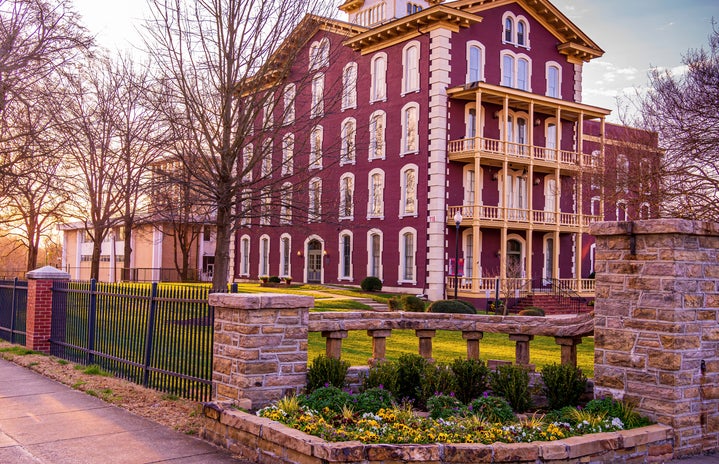On February 2, The New York Times reported that the FBI is investigating a series of bomb threats that recently targeted historically Black colleges and universities (HBCUs) around the United States. After at least 17 HBCUs received bomb threats over the course of the week, college campuses temporarily went on lockdown all over the country, with many students, staff, and faculty members reportedly fearing for their lives. According to the Washington Post, over two dozen HBCUs have faced similar threats this year, and Axios reports that over a dozen HBCUs received bomb threats on Tuesday, February 1 alone — notably, the first day of Black History Month.
HBCUs were established in the U.S. early in the 19th century to provide undergraduate and graduate-level education opportunities to Black students. According to the National Center of Education Statistics (NCES), there are currently over 100 HBCUs across the U.S. — and for decades, they have played a critical role in the American higher education system. Despite supporting some of the brightest college students in the world, HBCUs have faced a variety of challenges over the years; they are historically underfunded by state governments, struggle with accreditation, and more. Now, students attending HBCUs in America remain unsettled about the racially-motivated threats during a time dedicated to celebrating and honoring Black culture.
When frightening instances like the aforementioned threats unfold, it can be challenging to know what to do or how to help. However, there are many ways (both big and small) to step in, support your community, and make your voice heard. Whether you’re a college student, recent grad, educator, or community organizer looking to support Black students and communities during this time, here’s how you can support your local HBCU today.
Donate directly to your local HBCU.
One of the most valuable ways to give to your local HBCU is to donate directly to the institution. Not only are HBCUs historically underfunded, but many students are in need of financial assistance to complete their degrees. According to the Thurgood Marshall College Fund, 75% of students at HBCUs rely on Pell Grants and nearly 13% rely on PLUS Loans to meet their college expenses. Additionally, HBCUs have ⅛ the average size of endowments than historically white colleges and universities.
A little support can go a long way. Use the NCES College Navigator tool to locate an HBCU in your state, and consider donating either to the university as a whole, a specific academic program, or a campus initiative that directly supports Black students.
Use the “I Heart My HBCU” app to donate your spare change.
Founded by Dominique King, a Howard University alumna, the I Heart My HBCU mobile app makes it easy to donate your spare change to HBCUs in America. After downloading the app, simply link it to your bank account and the app will round each credit or debit card purchase to the nearest dollar. The spare change will then be donated to your five “favorite” HBCUs that you indicate — and you can edit the amount or switch your preferences at any time.
Contribute your time & talents to HBCUs.
Supporting your local HBCU doesn’t have to mean draining your wallet. There are many ways to give your time and talents; mentoring, volunteering, tutoring, speaking, leading a workshop, offering academic support, and more can all be meaningful ways to contribute. Make a connection with someone at a local HBCU, or inquire at your university how you can get involved. Offering to be a mentor for a first-year student or volunteering at the writing center can make a significant difference in a student’s life.
Write to your local and state governments about HBCUs.
State governments are often in charge of determining budget and support for HBCUs, and unfortunately, many of them around the U.S. experience drastic budget cuts and an overall lack of resources. Writing a letter or email to your legislator is a great way to advocate for HBCU funding in your state, and it only takes a few minutes. Read up on the policies impacting HBCUs and the surrounding community, call your politicians, and ensure that Black students get the resources, funding, and opportunities they deserve.
Do your research and educate yourself about HBCUs.
Remember: The onus isn’t on Black students to educate you about HBCUs and their history, so take matters into your own hands and be sure to do your research when navigating how to help. Whether it’s educating yourself via HBCU-focused reports, stats, and studies or attending a conference where you can learn, network, and get involved with HBCU advocacy, don’t be afraid to show up in unfamiliar spaces and offer a (well-informed) helping hand.
Support & spread the word about scholarship programs for Black students.
It’s no secret that college tuition is expensive these days, and students at HBCUs need your help more than ever. Whether it’s donating directly to a scholarship program, sharing scholarship info with your mentees, or creating a community database of available opportunities, you can support high school grads and current college students who aspire to attend college, whether at an HBCU or otherwise.
A few notable scholarships include The National Park Service’s Historically Black Colleges & Universities Grant Program, Ronald McDonald House Charities/African-American Future Achievers Scholarship, Jackie Robinson Foundation Scholarship, and scholarships provided by the United Negro College Fund (UNCF).
Support White House initiatives for HBCUs.
Check out the White House Initiative on Advancing Educational Equity, Excellence, and Economic Opportunity through Historically Black Colleges and Universities to learn what the U.S. government is doing to support HBCUs. The initiative is focused on eliminating barriers for HBCUs and providing the highest-quality education to HBCU students. They also have a National HBCU Week Conference and HBCU Scholar Recognition Program that celebrates and honors current HBCU students. Directly supporting White House initiatives — and even recommending someone to apply for a conference or grant — can be a great way to support your local HBCU.
Get involved with historically Black student organizations on your campus.
Whether you attend an HBCU or not, chances are, there is a community of incredible Black scholars on your campus that need your support and allyship. Research clubs and organizations like the Black Student Union, Black Women’s Caucus, Black Graduate Student Association, and others to learn how you can get involved. If you’re involved in Greek life, supporting the National Pan-Hellenic Council — which was founded at Howard University and joins fraternity and sorority organizations — can be a powerful way to get involved.
Volunteer, donate, or partner with organizations that support Black students.
Specialized organizations like the Student Freedom Initiative, The HBCU Foundation, Alpha Kappa Alpha’s Educational Advancement Foundation, and the National Society of Black Engineers are just a few of the many organizations that work specifically to advance the lives of Black students in America. For instance, you can volunteer with The HBCU Foundation to help provide internships, scholarships, and career opportunities to deserving students at HBCUs.
Invest in, recruit, and hire candidates from HBCUs.
If you’re in a position of power or hiring candidates for open roles, prioritize recruiting Black students and investing in graduates who attended HBCUs. Representation, equity, and inclusion matter more than ever before, and it’s crucial to amplify Black voices, enact fair workplace policies, hire diverse faculty, and more.
The bomb threats that took place are a stark reminder that racism still pervades American campuses. Supporting your local HBCU can be a small step toward safety and equal access for all. Of course, these are just a few of the many ways you can help — so let us know what organizations and resources you’re tapping into to show up for your community.


